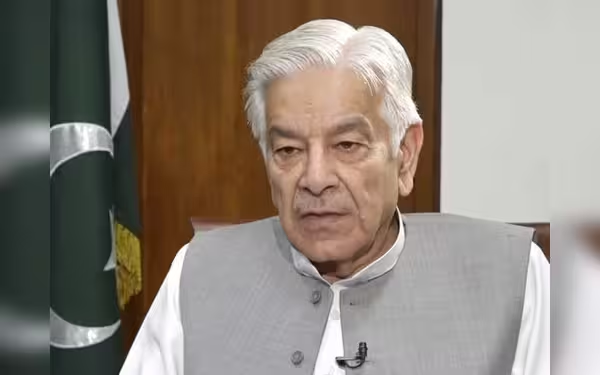Friday, November 8, 2024 01:00 AM
Khawaja Asif Critiques PTI's Power-Centric Focus
- Khawaja Asif criticizes PTI's focus on power struggles.
- PTI protests delayed crucial international engagements.
- Political priorities must align with national interests.
 Image Credits: tribune.com.pk
Image Credits: tribune.com.pkKhawaja Asif criticizes PTI leaders for prioritizing power struggles over national interests and international relations.
Khawaja Asif, a prominent leader of the Pakistan Muslim League-Nawaz (PML-N), has recently voiced strong criticism against the Pakistan Tehreek-e-Insaf (PTI) party, particularly targeting its leaders for what he describes as a "power-centric agenda." This statement comes in the wake of ongoing political tensions in the country, where the focus on power struggles often overshadows pressing national issues.
Asif highlighted a troubling pattern of behavior exhibited by the PTI since 2014. He recalled how the party's protests during that time not only disrupted the political landscape but also delayed significant international engagements, including the visit of the Chinese President. This visit was crucial for the initiation of the China-Pakistan Economic Corridor (CPEC), a project that promises to bring substantial economic benefits to Pakistan.
In his remarks, Asif reminded the public of the historical precedents set by the PTI's actions. He pointed out that such protests have consistently led to delays in international visits and engagements, which are vital for Pakistan's diplomatic relations and economic development. The implications of these delays are far-reaching, affecting not just the political climate but also the economic prospects of the nation.
Asif's criticism raises important questions about the priorities of political parties in Pakistan. Are they focused on serving the public and fostering international relationships, or are they more concerned with their own power struggles? The ongoing political discourse suggests that the latter may be true, as parties often engage in tactics that distract from the real issues at hand.
The remarks made by Khawaja Asif serve as a reminder of the importance of prioritizing national interests over personal or party ambitions. As Pakistan navigates through its complex political landscape, it is crucial for leaders to reflect on their actions and consider the long-term implications for the country. The future of Pakistan depends on a united front that prioritizes development, diplomacy, and the well-being of its citizens.













